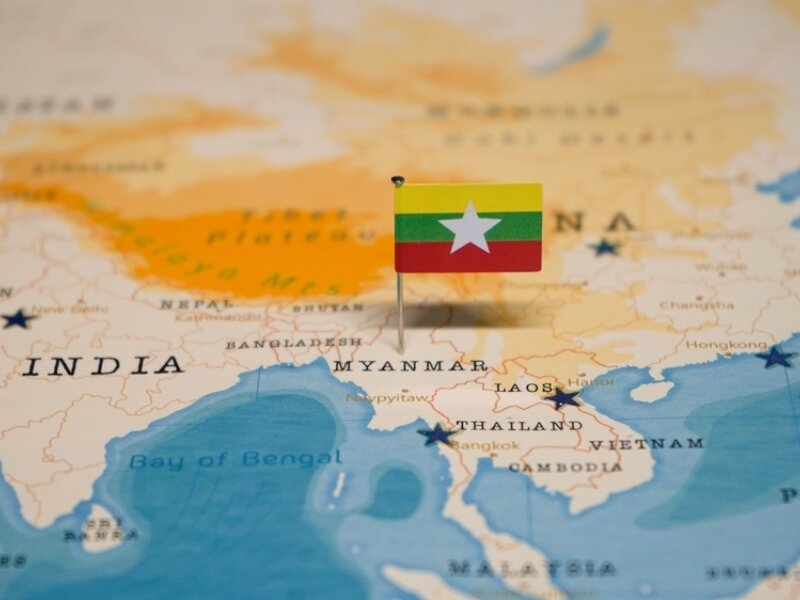The Western Balkans between Euro-Atlantic aspirations, ties with Russia and China, and inter-ethnic tensions
Tensions and winds of crisis in the Balkans. The article by Antonio Stango, published on the 25th of May 2024 in Il Giornale

Officially, five of the six Western Balkan countries are currently candidates for admission to the European Union. Only Kosovo does not have this status, whose independence, proclaimed in 2008, was recognized by around 100 states but not by five of the 27 EU members (Spain, Romania, Greece, Slovakia, and Cyprus), while Serbia continues defining it as its own province. However, the European integration of the region – despite the relative progress made by Montenegro, North Macedonia and Albania – remains a difficult objective. This phenomenon is hindered by both the shortcomings and delays in the full implementation of the rule of law, in the fight against corruption, and by Serbia’s failure to align itself with the regional common foreign and security policy. These factors have direct implications in two areas of crisis which threaten to escalate dangerously: on the one hand with new threats of secession of Republika Srpska from Bosnia-Herzegovina, and on the other with the worsening of tension between Serbia and Kosovo.
In the last few weeks, the debate, rather than in Brussels, took place with very heated tones at the United Nations in New York and at the Council of Europe in Strasbourg. At the UN General Assembly, Germany, Rwanda, and Bosnia-Herzegovina have filed a resolution – approved on 23rd of May – declaring the 11th of July as the “International Day in Remembrance of the Srebrenica Genocide in 1995” – when more than 8,000 Bosniak men and boys were rounded up and killed by Bosnian-Serb forces. The massacre was legally defined as genocide by the International Criminal Tribunal for the former Yugoslavia and by the International Court of Justice; but the President of Serbia, Aleksandar Vučić, spoke of an attempt to impose “collective guilt” on the Serbian nation, perhaps “due to the lack of sanctions against Russia” or “the failure to resolve the Kosovo issue”. For his part, the denialist President of Republika Srpska, Milorad Dodik, known for his frequent secessionist utterances, stated that the Serbian people should be ready to “give a strong response” and that its entity should declare as invalid on their territory any decisions of all the central bodies of Bosnia and Herzegovina. According to the permanent representative of the Russian Federation to the UN, Vassily Nebenzja, the adoption of the resolution “would open Pandora’s box”.
Meanwhile, on the 2nd of May, the Serbian Parliament voted its confidence to the new government, whose Prime Minister Miloš Vučević (President of Vučić's Serbian Progressive Party and very loyal to him) declared that obtaining the EU membership remains a strategic objective, but that Serbia does not intend to “humiliate itself” by recognizing the independence of Kosovo and adhering to the sanctions against Russia for the invasion of Ukraine. The Prime Minister inserted two politicians sanctioned by the US into the cabinet: one is the Deputy Prime Minister Aleksandar Vulin, former director of the Security Agency, whose “corrupt and destabilizing acts” allegedly “facilitated Russia’s malign activities in the region”; and the other is the Minister without portfolio Nenad Popović, an entrepreneur involved in operations with Russia’s electronics sector. In his planned speech, Vučević also highlighted the importance of the partnership with China, which is the second largest investor in the country after the EU. It is not a coincidence that Belgrade was the second of the three stops in the European leg of the Chinese President Xi Jinping’s tour of visits. The visit had a strong anti-Western symbolism, as took place exactly on the 25th anniversary of the bombing by NATO (during the air campaign against the regime of Slobodan Milošević to stop ethnic cleansing in Kosovo) in which the Chinese embassy was accidentally hit and three people were killed. Now a gigantic “Chinese Cultural Center” has arisen on that site, which opening has been completed in the last few days.
According to Caroline Ziadeh, who heads the United Nations mission in Kosovo (UNMIK), the level of mutual distrust between Belgrade and Pristina “remains high and must be addressed”. The Serbian President claims that the violent episodes that have occurred in Kosovo in the recent months are the consequence of the “repression” of the Serbs by the Kosovars; he cites the failure to establish the Association of Serbian Municipalities of Northern Kosovo, also requested by the EU, and the restrictions on the use of the Serbian dinar imposed by Pristina. Kosovo, on the other hand, accuses Serbia of interference and pressure on the ethnically Serb citizens themselves; also pushing them to boycott local elections and the functioning of the administration in the four municipalities where they have a clear majority.
The other source of diplomatic conflict is Strasbourg: Serbia is trying to prevent the admission of Kosovo to the Council of Europe, which – as recommended by the organization’s Parliamentary Assembly – could be decided in the future by the Committee of Ministers of the 46 member states. While Kosovo cannot be admitted to the United Nations, due to the veto of Russia and China in the Security Council, entry into the Council of Europe (from which Russia was expelled in March 2022) would be considered of historical importance. However, Belgrade has gone so far as to raise the possibility that, in this case, Serbia will leave the organization.
Meanwhile, a military exercise conducted by Serbia from the 8th to the 21st of April was defined by the Kosovo Ministry of Defense as “a threat to stability and security in the Balkans” due to its size, timing, and weapon systems used. Moreover, the risk that ethnic tensions could intensify has led the supreme command of NATO forces in Europe to authorize a reinforcement of personnel and armaments in Kosovo and Bosnia-Herzegovina, respectively within the framework of the KFOR mission and the EUFOR Althea operation.



